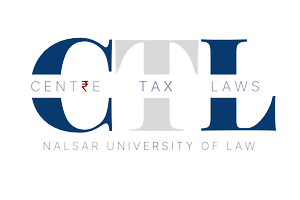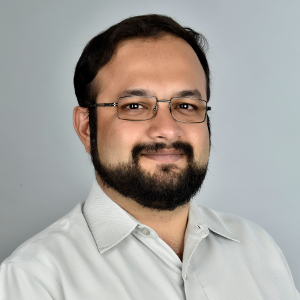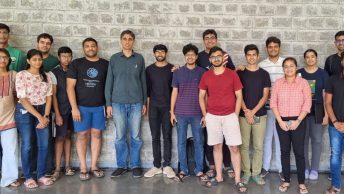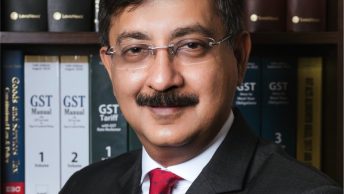In conversation with Alok Prasanna Kumar, Co-Founder of Vidhi Centre for Legal Policy and Research. An Alumnus of NALSAR University of Law and Oxford University, his research areas include judicial reforms, Constitutional Law, urban development, and law and technology. He writes a monthly column for the Economic and Political Weekly, and has published papers in several leading journals such as the Indian Journal of Constitutional Law and the National Law School of India Review, apart from media outlets such as The Hindu, Indian Express, Scroll, Quint and Caravan and currently co-hosts the Ganatantra podcast on IVM Podcasts.
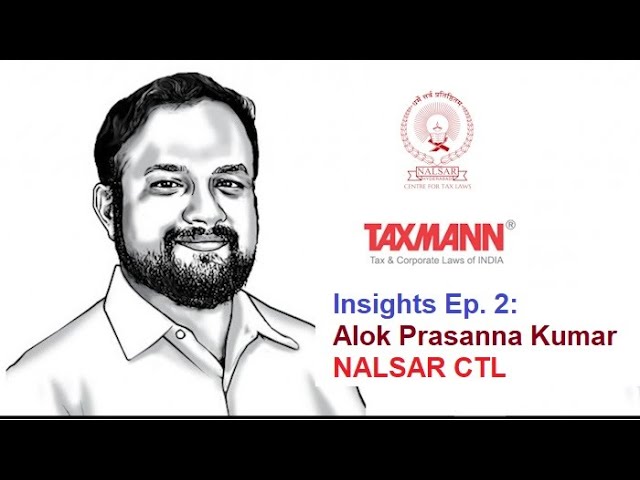
The interview begins by seeking insights from his journey at NALSAR and Oxford along with his experience in the early days of his profession working with the Solicitor General’s office. We then hear from him about his inclination towards policy research and the origins of Vidhi.
Q1. What is your fondest memory at NALSAR University of Law?
It’s a combination of things… There are multiple things, the placement of the campus in a beautiful secluded area, the professors, the academic experience. The seclusion helped us learn more skills of socialization among people not like us. There was a great mix of well-established professors, well respected in their own fields, long experience of teaching. NALSAR gave me a great overall experience and fundamentally helped shape the person I am today.
Q2. How was your experience at the University of Oxford, where you did your BCL?
My interest was more always in the area of public law. The subjects I took at Oxford were all mostly public law related subjects like jurisprudence, socio-economic rights, competition law, and regulation. Oxford was a challenge because Oxford, as one of my seniors put it, was where you would get exactly as much as you put in. Now I was with the best from around the world and that forced me to push myself further to say I have to do better at this. I had the time, the space, the environment, the guidance, the peers which helped you write so well.
I didn’t have a specific Constitutional Law of focus. I didn’t know what I wanted to do after Oxford. Towards the end of my time at Oxford, I got this email from a friend saying that there is this senior advocate in Delhi who is looking for two juniors. So, in August 2009, I began practice in Mr. Mohan Parasaran’s chambers.
Q3. How was your experience at Mr Mohan Parasaran’s Chambers?
He was then the Additional Solicitor General so the work was related to some of the biggest disputes involving the government at the time. I think I was exposed to almost every area of law, except maybe two or three. It was a litigation experience I do not think anybody else in the country would have got. But I believe in those four and a half years, I got to do the kind of matters, work on variety of cases that 99% of law students, or lawyers in this country do not get to do in their entire lives. So, in that way, it was a great privilege to have worked in those chambers. He not only entrusted me with responsibility since day one, but also gave me some level of independence with this work such that I could work without templates. And he would encourage me in the profession if I showed competence. There were very few advocates like him and I look back at that time very fondly. I think one of the things that happened during the course of my work with Mr. Mohan Parasaran was that we got a lot of tax matters. He was one of two senior advocates of the Union government who used to handle tax matters and he would get about 15 to 20 such cases every Monday and Friday. It was the steepest learning curve possible. His arguments made me realise that there is more to the Constitution than just the Part III which is sort of the glamorous part of it, but I started reading more about tax and researching on my own and that is how the journey started.
Q4. When did you come up with the idea to set up a think tank like Vidhi Centre for legal policy? Was this something that you always wanted to do?
I had two options: either to say litigation is definitely for me and I’m going to invest all my time and energy in going independent and building my own practice or, saying it is not for me and I think I will try something else. I chose the latter option. I had a steady stream of work due to working in Mr. Parasaran’s chambers but I felt it was not necessarily what I wanted to do. So I was thinking a little bit more in terms of research, in terms of thinking about the institution itself. Working at the Supreme Court, what I saw was that everybody was looking at the output of the institution without looking at what the institution itself was doing – just a who said what in the court and that is about it. It did not go into how the case was filed, how it got into the system, how long did it take, how was it delegated – and I thought this is an area which needed research. I wasn’t sure exactly what I want to do, which is when I found out that Arghya Sengupta who I knew from Oxford, was going to set up something like Vidhi. And I was like, hey, I want to join. It was encouraged by a bunch of people, including the first chairman of our board, Mr. Ganguly, who wanted to set it up as an independent entity which will undertake legal research and assist the government in making better laws. We started officially in December 2013 out of my living room in Delhi because Arghya had just moved in. We got our own office eventually and all of that. But that’s the genesis of Vidhi.
Q5. What did you anticipate Vidhi would become at the time when it was being founded?
I had no such anticipations or expectations. I thought we will take it year by year. Initially, there was a three-year plan as to how much funds we will raise, how many people we will have, and what we will do. But I do not think in my wildest imagination, I would have thought that by 2022, Vidhi would be in three different cities. We would have about 95 staff or so, including researchers. We will have a budget for the double-digit crores and we will have the kind of impact it has had. What we had thought was we would have a couple drafts here and there and a couple of reports which people might look at and cite. I did not think that, in my wildest imagination that we would have this kind of response, this kind of uptake, this kind of reach, this kind of impact in many different ways. Our goals were modest that we will see what happens in these three years. I think in some ways we were secure in the fact that we will try our best and it is not a matter of survival of Vidhi for us since we had had our careers before it. And that allowed us to take principled decisions about a lot of things and well-thought-out calls that made Vidhi a success. We are still a young organization; I still say we have a long way to go. All of this has been a combination of hard work, of luck, of other people helping us, of the right kind of circumstances, and I am grateful to be where we are right now.
